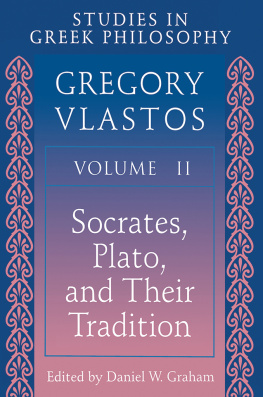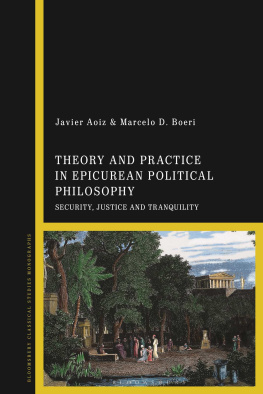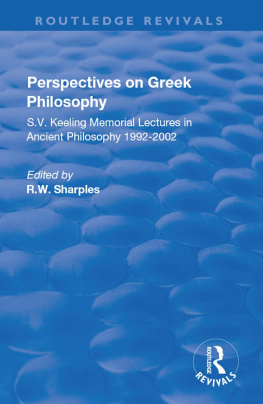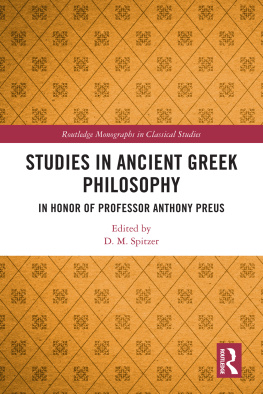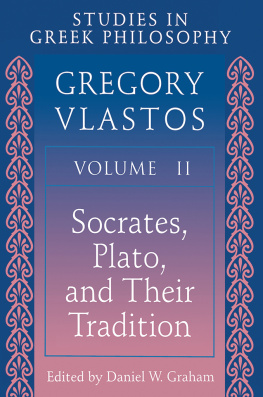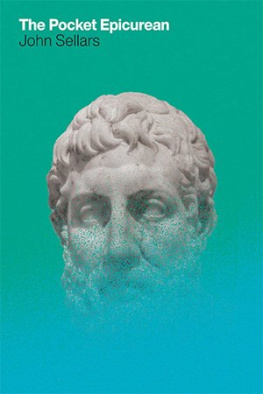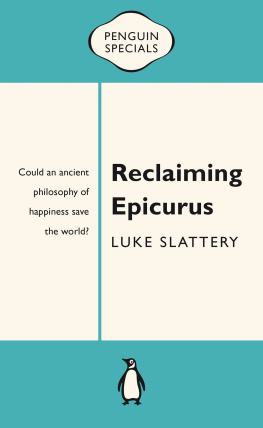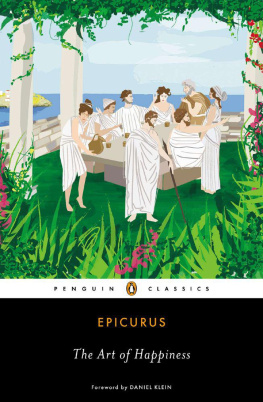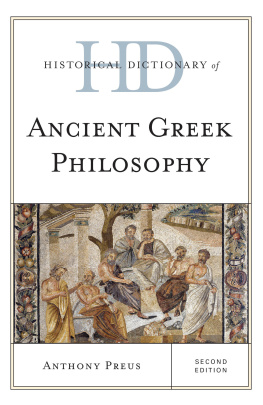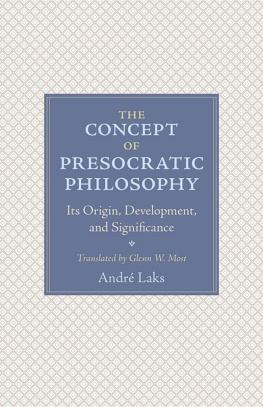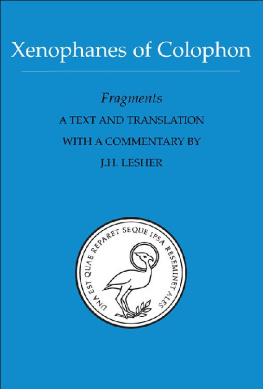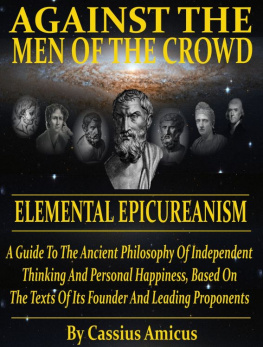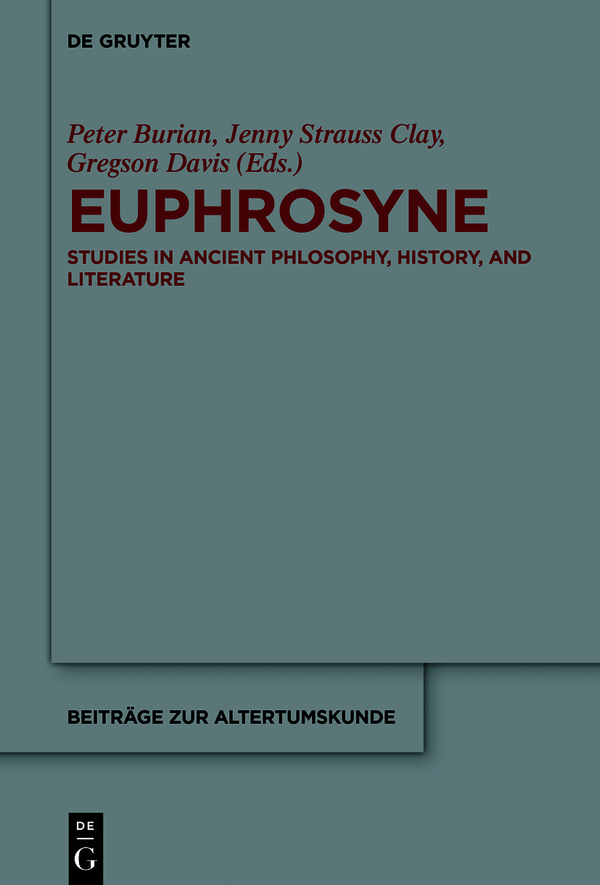Beitrge zur Altertumskunde
Edited by
Susanne Daub
Michael Erler
Dorothee Gall
Ludwig Koenen
Clemens Zintzen
Volume
ISBN 9783110597653
e-ISBN (PDF) 9783110605938
e-ISBN (EPUB) 9783110604597
Bibliographic information published by the Deutsche Nationalbibliothek
The Deutsche Nationalbibliothek lists this publication in the Deutsche Nationalbibliografie; detailed bibliographic data are available on the Internet at http://dnb.dnb.de.
2020 Walter de Gruyter GmbH, Berlin/Boston
In Memory of Diskin Clay
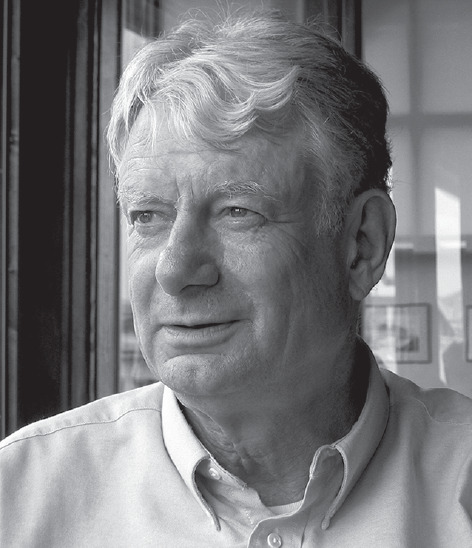
Diskin Clay, photograph courtesy of Jenny Strauss Clay
Introduction
Peter Burian
Michael Erler
Gregson Davis
Diskin Clay, the Scholar and the Man
Burian Peter
This volume is among other things a liber amicorum for a beloved friend, and we have striven to make its contents reflect the variety of Diskin Clays interests as well as his continuing influence on colleagues and students in his own country and abroad. It is not least a tribute to the gift of friendship which was so much part of his nature, but which he also cultivated with energy and devotion.
A few observations about Diskins life and career may be in order. For starters, nothing in his background (except perhaps for an early encounter with Latin in his Catholic childhood) would lead one to predict a distinguished career as a classical scholar. Born in Reno, Nevada, Diskin was raised by his paternal grandparents, his childhood marked by polio, and then (as if in response) by bouts of mountain climbing and heavy physical labor. Diskins primary role model was his beloved grandfather, Michael Angelo Diskin, a successful lawyer and at one point attorney general of Nevada, who expected his grandson to follow him into the law. Instead, attracted by what he had heard from a friend about the required first-year humanities course at Reed College, he applied and was accepted. This choice may have spared him a jail term for his part in a brawl, since the judge, learning of his plan to leave the next day for college out of state, sentenced him not to let the sun set on him in the state of Nevada. His time at Reed was transformational if not tranquil and set him firmly on the path to a life of letters. And of course it was the occasion for forming a number of enduring friendships, not least with Didier Coupaye, the professor who introduced him to France, its language and its literature, and his fellow student Jenny Strauss, who became his first wife and a lifelong friend. Her father, Leo Strauss, was to be in turn an important intellectual influence.
Diskins academic career pursued what was then an (at least outwardly) normal progression: a Fulbright fellowship in France, graduate study at the University of Washington and the American School in Athens, appointment to a teaching position at his alma mater, Reed College (19661969), followed by a Junior Fellowship at the Center for Hellenic Studies in Washington, D.C. (196970). Diskins appointment to the faculty of Haverford College (197076) led to lasting and productive friendships with, among others, Charles Kahn and Joseph Russo. Twelve years at Johns Hopkins University (19761988), where William Arrowsmith became a close friend, were capped by the annual Whitehead Professorship at the American School in Athens (198889). After a brief period of commuting from Baltimore to the CUNY Graduate Center, Diskin settled definitively on Duke University in 1990, retiring in 2008. Eight of his books and monographs appeared during his years at Duke, and well over half of his contributions to journals and edited volumes.
Over the course of Diskins career, he taught a large number of courses, graduate and undergraduate, in the ancient languages and in translation, on classical civilization and on its afterlife. He was Doktorvater to a large and diverse group of students, who wrote dissertations on equally varied subjects; he was mentor and inspiration to many more.
Travel and teaching fostered and shaped much of Diskins scholarly and creative work. His long sojourns in Greece, for example, led to a deep engagement with modern Greek poetry, culminating in encounters with two of its giants, Seferis and Elytis, translations of poems by Seferis, and essays on Cavafys Hellenism. Similarly, teaching out of his field in undergraduate or Graduate Liberal Studies settings opened new scholarly vistas that led, for example, to his work on Dante and the book Four Island Utopias.
Diskin liked to sing the praises of what he called geographische Philologie, but it was intellectual curiosity, not mere Wanderlust that spurred him to eager and tenacious exploration. In a passage of his memoir, Diskin mentions that, while in Athens reading Archilochus in connection with his work on Alcmans Partheneion, the simple notation in Martin Wests Elegi et Iambi Graeci regarding the Mnesiepes inscription pergit inscriptiothe inscription continuesprompted his first visit to Archilchus home island of Paros in 1989. The ultimate outcome would be Archilochos Heros, published fifteen years laterthe quintessential Diskin Clay book in its deployment of philological, archeological, and epigraphical evidence, and the boldness of the argument drawn from their juxtaposition.
Diskin published in his lifetime some thirteen books (written or co-authored), more than one-hundred articles, notes, and miscellanea, and twenty-nine book reviews. with which he pursued them. For Diskin, the scholars life was very much a vita activa, requiring one to stay on the move both mentally and physically. Participating in the excavation of an ancient vessel off the coast of Kyrenia in the summers of 196869, he took characteristic delight in the hard work of underwater salvage archeology. He worked with enormous patience on the vast and remarkable Epicurean inscription at Oenoanda. But whether his subject involved monuments, artifacts, texts, or all three, Diskins work was always aimed at getting inside them, so to speak, discovering the codes and contexts that reveal something about life as experienced, meaning as conceived at the time and place in question. Thus, for example, the persistent interest Diskin shows in Epicurean communities and their role in the development and diffusion of philosophical doctrine.
Much of Diskins scholarship engages ancient philosophy, Epicureanism most prominently, but Plato and Platonism as well. Professor Michael Erler offers an assessment of Diskins contributions in the next section of this Introduction, so I will not dwell on it here except to point out that Diskins publications in this field extend over some forty-four years, De Rerum Natura: Greek Physis and Epicurean Physiology (Lucretius 1.1148), an article that appeared in 1969, to Empedocles in Panopolis and Delphi in 2013. Moreover, no fewer than eight of his thirteen books and monographs deal directly with philosophy and philosophers. Lucretius and Epicurus (1983) was Diskins first scholarly book, followed by a collection of essays on Epicureansm (Paradosis and Survival, 1998), monographs on the philosophical inscription of Diogenes of Oenoanda (1990) and on Lucian of Samosata (1992), and Platonic Questions (2000). In addition, Diskin was co-author with Robert Horwitz and Jenny Strauss Clay of the aforementioned edition and translation of John Lockes


